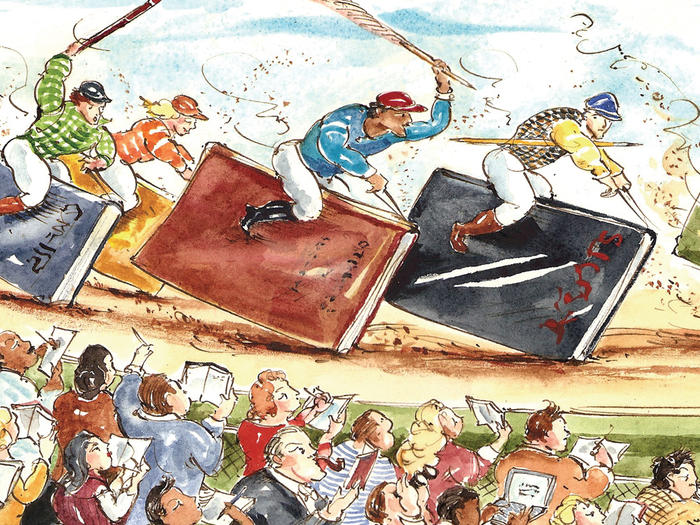Sempre Susan, born out of an essay, tapers into loosely connected vignettes to unsettling effect, mirroring Sontag and Nunez’s friendship in later years. In memoir, story is used to illuminate the self; Nunez chronicles, remembers, reflects, but ultimately drifts. Susan Sontag, as F.R. Leavis said of the Sitwells, belongs less to the history of literature than to that of publicity. Anyone with the least intellectual pretension seemed to have heard of, if not actually read, her. Outside of the movies and politics, Sontag must have been one of the most photographed women of.
Terry Castle took a lot of heat for what she wrote about Susan Sontag in “Desperately Seeking Susan.” (The London Review of Books carries the 2005 Sontag anti-memoir here). Although she had she been invited to Sontag’s memorial service, she was “disinvited the day after this piece came out.” She received a nasty email from Sontag’s son, David Rieff.

So it’s curious to see the respectful reception given to novelist Sigrid Nunez‘s memoir, Sempre Susan, which is getting some good reviews. Nunez had been Rieff’s lover — a threesome in Sontag’s apartment. The commotion is somewhat surprising, given that no bookstore in Palo Alto seems to have the book yet — not Stanford Bookstore, nor Kepler’s, nor Borders, nor anywhere else I could find — so I figure it must be carried by a handful of bookstores in New York.
One thing is clear: Sempre Susan vindicates every word Terry wrote.
Joseph Epstein, former editor of The American Scholar,uses the occasion of the publication to take Sontag down a notch or two in the the Wall Street Journal: “In her thrall to ideas she resembles the pure type of the intellectual. The difficulty, though, was in the quality of so many of her ideas, most of which cannot be too soon forgot,” he writes, before recapping her political career.
Vindication for Terry
He concludes:
Although Sigrid Nunez appreciates Susan Sontag’s curiosity, wide reading, courage in the face of bad health, and independence, her unreality, her deep and abiding unreality, is the final impression that “Sempre Susan” leaves on the reader. Sontag didn’t mind whose feelings she hurt. Her trips to give talks at universities are strewn with stories of her disregard of her audience and astonishing impudence. No one was allowed to get in the way of her desires or disrupt her sense of her own high seriousness.
At the end of Sempre Susan, Ms. Nunez presents a woman who is filled with regrets, not about her treatment of others but about her own achievement. Still confident of her “worthy contribution to culture and society,” she nonetheless wishes that she had been “more artist and less critic, more author and less activist Free download adobe photoshop cc cracked. . . . . No, she was not happy with her life’s work. . . . True greatness had eluded her.” Deluded to the end, Susan Sontag had no notion that not literature but self-promotion was her real métier.
Susana Sempre Roble
This is far more unjust than anything Terry may have said in her wry and self-mocking piece. While Epstein quotes Camille Paglia‘s assessment of Sontag — that she “made fetishes of depressive European writers” — it’s worth noting that Sontag’s championing of world literature in America did make a dent in American consciousness, which had, at the time of her launch in the 1960s, been a pretty parochial affair.
And despite Epstein’s dismissal of it, it did indeed take courage to face boos and jeering at the 1982 rally (not to mention the nasty aftermath in the press) where she said: “Imagine, if you will, someone who read only the Reader’s Digest between 1950 and 1970, and someone in the same period who read only The Nation or [t]he New Statesman. Which reader would have been better informed about the realities of Communism? The answer, I think, should give us pause. Can it be that our enemies were right?” Is there anyone outside Nepal who would defend Communism today?
That said, it will take years to figure out Sontag’s legacy — as a writer, and as a role model for a generation of women who were born when the coupon-clipping Mamie Eisenhower was First Lady.

I wrote to Terry to ask her what she thought — of the book, and also of Epstein’s review. It was several days before she responded — she was swept up in the first week of spring classes. But she finally dashed off a quick email:
Sempre Susan A Memoir Of Susan Sontag

Sempre Susan Deutsch
Sempre Susan Pdf
Tags: 'Susan Sontag', 'Terry Castle', Camille Paglia, Joseph Epstein, Sigrid Nunez


